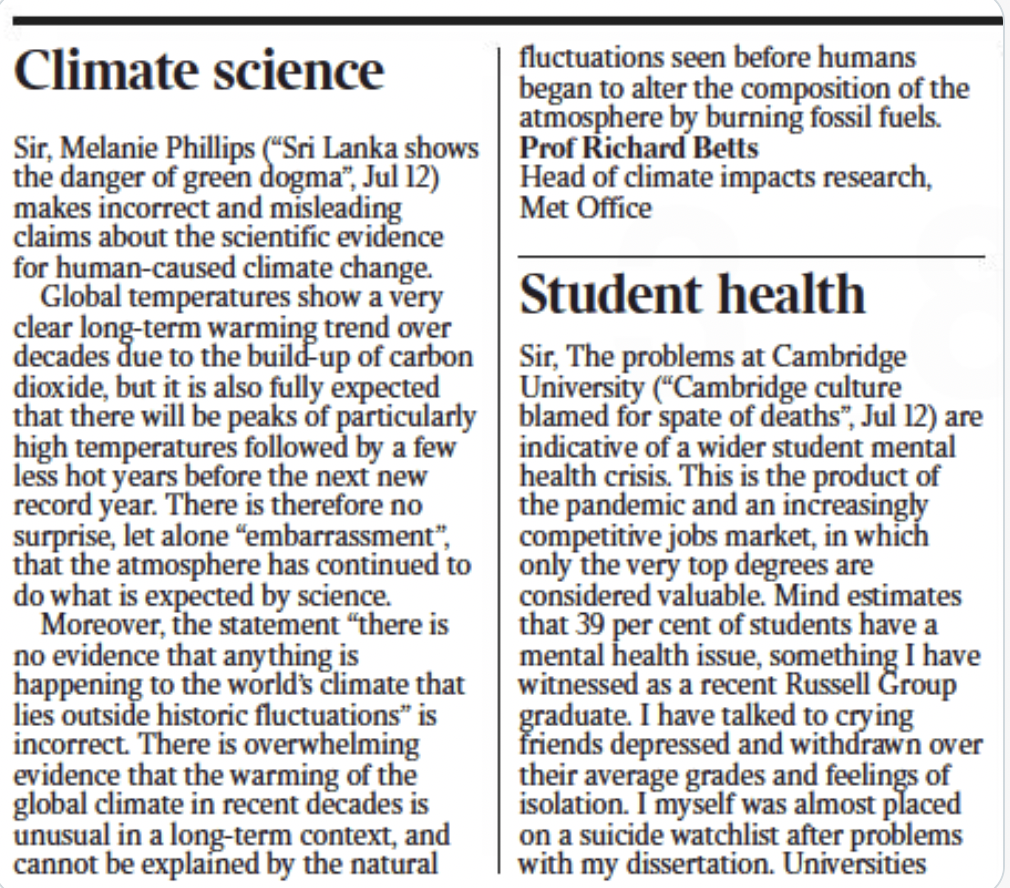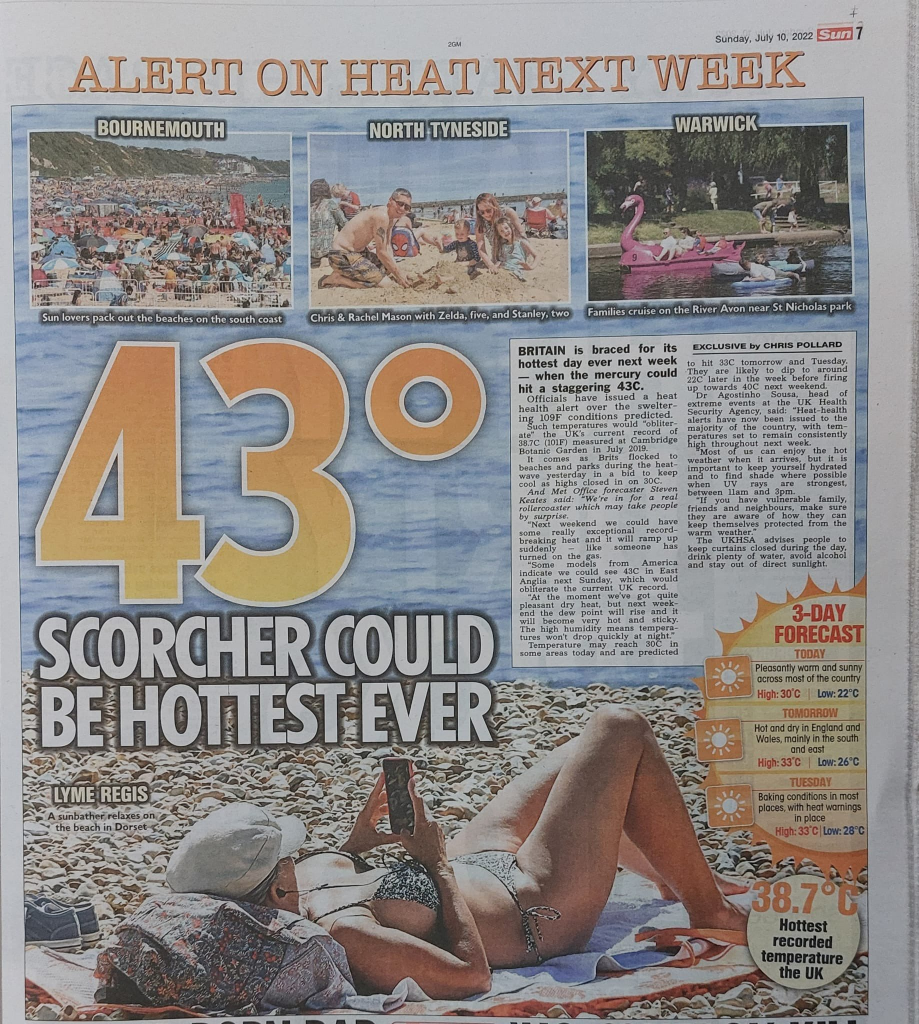As the UK anticipates a heatwave that may well break existing records to the tune of 2, 3 or 4 degrees, this seems like an opportune moment to ask questions about the UK media, both print and broadcast, and how it is facilitating the destruction of our planetary life-support systems. A letter sent to The Times yesterday, by Professor Richard Betts, the Head of Climate Impacts Research at the Met Office, seems like a good enough place to start. The letter responds to an article by the commentator Melanie Phillips, in which she lambasted ‘an elite’s ideological fixation’ on apocalyptic climate change scenarios, stating that ‘There is no evidence that anything is happening to the world’s climate that lies outside historic fluctuations’. Betts’s letter stated, simply and straightforwardly, that she was wrong, her claims running counter to ‘overwhelming evidence’.

What is happening here? Phillips’ article was just an opinion piece, and people are usually thought to be entitled to their opinions, even where they are fairy tales. No apology or correction will be printed in relation to her misinformation, no complaint against it will be sustained, because it is just her opinion. Yet her opinion–in 930 words of doubtful logic, premised on transparent falsehoods–was printed in a newspaper that considers itself an organ of national record, with a circulation of 370,000 copies a day. It was not just an opinion; it was a broadcast to the nation which will be taken seriously by policymakers and politicians. Indeed, the article was clearly intended to influence the Conservative party leadership elections; it concluded by railing against ‘the Tories’ green believers’, those with the temerity to want to keep the net zero 2050 commitment.
Phillips at least lays her cards on the table–in spite of overwhelming evidence, she doesn’t believe in the science. But her article is just one small part of a more disturbing picture, in which whole sections of the UK media have come out against radical action on climate collapse. Sometimes this is explicit, as in Phillips’s case, or in the comical scene that played out on GB News yesterday, when meteorologist John Hammond predicted that the coming heatwave would lead to hundreds and possibly thousands of premature deaths, and was contradicted by a news anchor who said she ‘want[ed] us to be happy about the weather’. Sometimes it is semi-explicit, as when three or four national newspapers (the Telegraph, the Express and the Sun among them) simultaneously came out in favour of fracking and ‘energy security’–meaning new oil and gas projects in the North Sea–after the Russian invasion of Ukraine. Sometimes, and perhaps more insidiously, it is silent, as when the BBC’s flagship radio news programme, Today, focuses on trivial stories and fails to cover floods, droughts and wildfires; or when it elects not to notice protests calling for action; or when it decides not to invite a politician to comment on stories relating to climate collapse.
That question again: what is happening here? The consumers of news media cannot see any of the decisions that are being made in boardrooms by the editors and deputy editors, and cannot feel the pressures coming from politicians or from billionaire media moguls. We cannot see how the profits from fossil fuels trickle down into the pockets of politicians and commentators, and how fossil fuel-funded lobbyists fan out across Westminster to reshape the big stories in forms that fit with their business models. (We know it’s happening, thanks to groups such as DeSmog, but usually we get to hear the details retrospectively, when the damage has been done). But these are the most material texts of our age. If we’re lucky enough to be able to look back, we’ll surely see each one as a nail in the intended coffin.

